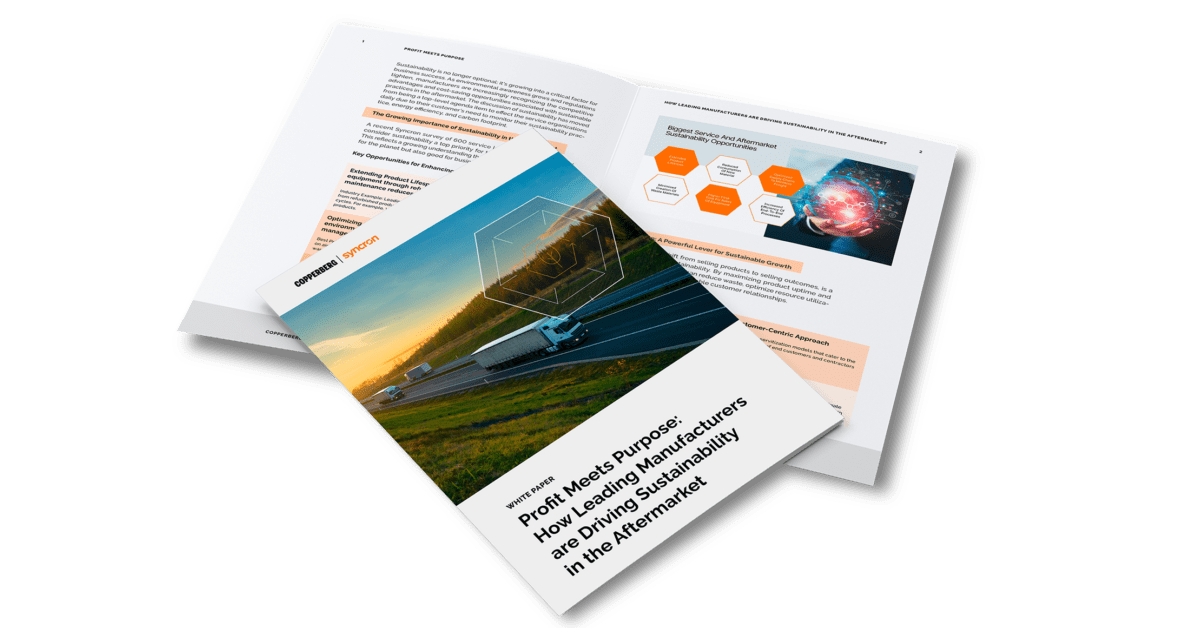Profit Meets Purpose: How Leading Manufacturers are Driving Sustainability in the Aftermarket
Post event debrief report

In December 2024, Syncron hosted a workshop titled „Profit Meets Purpose: How to Embrace Servitization and Data-Driven Strategies for a Circular Future.“ The event brought together industry leaders to explore how sustainability and profitability can co-exist in the aftermarket. As environmental awareness and regulations tighten, manufacturers are realizing the value of sustainable practices—not just for the planet but also for business success. This report outlines key findings and strategies from the event.
Key Insights
- Sustainability as a Priority: 29% of surveyed service leaders rank sustainability as a top priority in aftermarket operations, driving cost savings and competitive advantage.
- Servitization for Sustainability: Transitioning to outcome-based services maximizes product lifespan and reduces waste. Example: Volvo generates 30% of its aftermarket revenue from refurbished products.
- Circular Economy Barriers and Solutions: Challenges like inadequate processes, data, and infrastructure can be addressed through standardized procedures, data collection, and stakeholder collaboration.
Key Recommendations
- Adopt Servitization Models: Focus on long-term sustainability and customer outcomes.
- Optimize Data Usage: Centralize data systems to enable actionable insights and overcome legacy barriers.
- Advance Circular Economy Initiatives: Build infrastructure, incentivize practices, and promote consumer acceptance.
Conclusion
The aftermarket industry stands at the intersection of sustainability and profitability. By embracing servitization, data-driven strategies, and circular economy principles, manufacturers can secure both financial growth and environmental impact, ensuring a future where profit meets purpose.